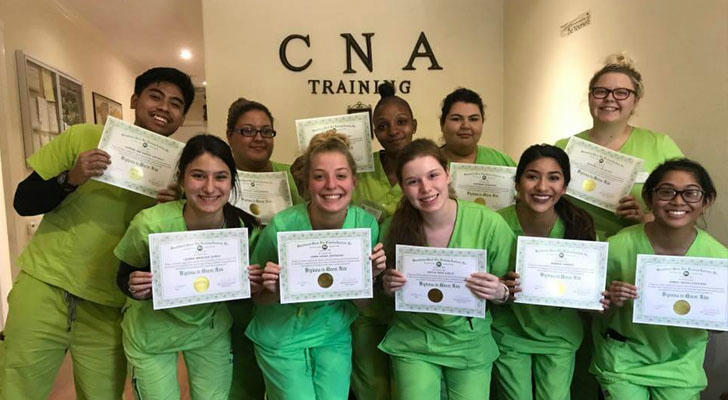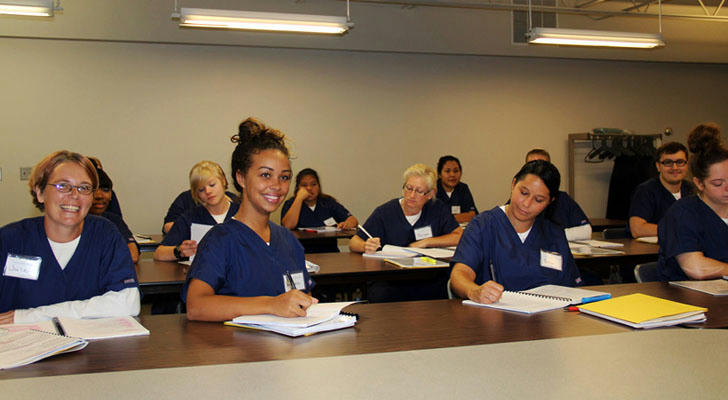CNA Course Overview: Everything You Need to Know
Becoming a Certified Nursing Assistant (CNA) is a rewarding career path for those interested in healthcare. CNAs play a vital role in patient care, providing essential support to nurses and helping patients with their daily needs. If you’re considering a career as a CNA, this article will guide you through everything you need to know about CNA courses, including what to expect, how to choose the right program, and the skills you’ll acquire.

What is a CNA?
A Certified Nursing Assistant is a healthcare professional who assists patients with basic care needs. This role typically involves helping patients with activities of daily living (ADLs), such as bathing, dressing, eating, and mobility. CNAs work in various settings, including hospitals, nursing homes, and assisted living facilities. They are often the primary caregivers for patients, making their role crucial in the healthcare system.
Why Become a CNA?
There are several reasons why becoming a CNA can be an excellent choice:
1.Job Stability: The demand for CNAs is consistently high due to an aging population and the increasing need for healthcare services.
2.Short Training Period: CNA programs typically take only a few weeks to a few months to complete, allowing you to enter the workforce quickly.
3.Career Advancement Opportunities: Many CNAs use their experience as a stepping stone to further their education in nursing or other healthcare fields.
4.Personal Fulfillment: Helping others and making a difference in their lives can be incredibly rewarding.
What to Expect from CNA Courses
Course Structure
CNA training programs generally include both classroom instruction and hands-on clinical practice. Here’s what you can expect:
Classroom Learning: This portion covers essential topics such as anatomy, physiology, infection control, patient rights, and communication skills. You’ll learn about the healthcare system and the specific duties of a CNA.
Clinical Practice: Hands-on training is crucial for developing practical skills. During this phase, you will work under the supervision of experienced instructors in real healthcare settings. You’ll practice tasks such as taking vital signs, assisting with hygiene care, and using mobility aids.
Duration of Training
Most CNA programs range from 4 to 12 weeks, depending on the institution and whether you choose full-time or part-time study. Some programs may offer accelerated options for those who want to complete their training quickly.
Certification Requirements
To become certified as a CNA, you must pass a state-approved certification exam after completing your training program. This exam typically consists of two parts:
1.Written Test: This assesses your knowledge of nursing assistant skills and concepts.
2.Practical Exam: You will demonstrate your ability to perform specific tasks in front of an evaluator.
Each state has its own requirements for certification, so it's essential to check your local regulations.

Choosing the Right CNA Program
When selecting a CNA course, consider the following factors:
Accreditation
Ensure that the program is accredited by a recognized body. Accreditation guarantees that the program meets specific educational standards and prepares you adequately for certification.
Curriculum
Review the curriculum to ensure it covers all necessary topics and includes ample hands-on training opportunities. A well-rounded program will prepare you for both the written and practical portions of the certification exam.
Location and Flexibility
Consider the location of the training facility and whether it offers flexible scheduling options that fit your lifestyle. Some programs may offer evening or weekend classes to accommodate working students.
Cost
Tuition costs can vary significantly between programs. Look for financial aid options or scholarships if needed. Remember that investing in your education can lead to greater job opportunities in the future.
Skills You Will Learn
CNA courses are designed to equip you with various skills essential for providing quality patient care:
Basic Patient Care Skills
You will learn how to assist patients with daily activities such as bathing, dressing, grooming, eating, and using the restroom.
Vital Signs Monitoring
Monitoring vital signs—such as blood pressure, pulse rate, temperature, and respiration—is a critical skill for CNAs. You’ll learn how to accurately measure these signs and report any changes to nursing staff.
Infection Control Practices
Understanding infection control is crucial in healthcare settings. You will learn about hand hygiene, proper use of personal protective equipment (PPE), and protocols for preventing infection transmission.
Communication Skills
Effective communication is vital when working with patients and healthcare teams. You’ll develop skills in active listening, empathy, and clear verbal communication.
Emergency Response
CNAs must be prepared for emergencies. Training will include basic first aid techniques and how to respond appropriately in various situations.

Career Opportunities After Certification
Once you obtain your CNA certification, numerous job opportunities await you:
Nursing Homes: Many CNAs find employment in long-term care facilities where they assist elderly residents.
Hospitals: In hospitals, CNAs provide support in various departments such as medical-surgical units or rehabilitation centers.
Home Health Care: Some CNAs work directly with patients in their homes, providing personalized care.
Assisted Living Facilities: These settings require CNAs to help residents maintain their independence while ensuring their safety and well-being.
Conclusion
Embarking on a career as a Certified Nursing Assistant can be an enriching experience filled with opportunities for personal growth and professional development. By understanding what CNA courses entail—ranging from classroom instruction to hands-on practice—you can make informed decisions about your education path. With dedication and compassion, you can make a significant impact on the lives of those you care for while enjoying a stable career in healthcare. If you're ready to take the first step toward becoming a CNA, research local programs today and start your journey toward this fulfilling profession!
